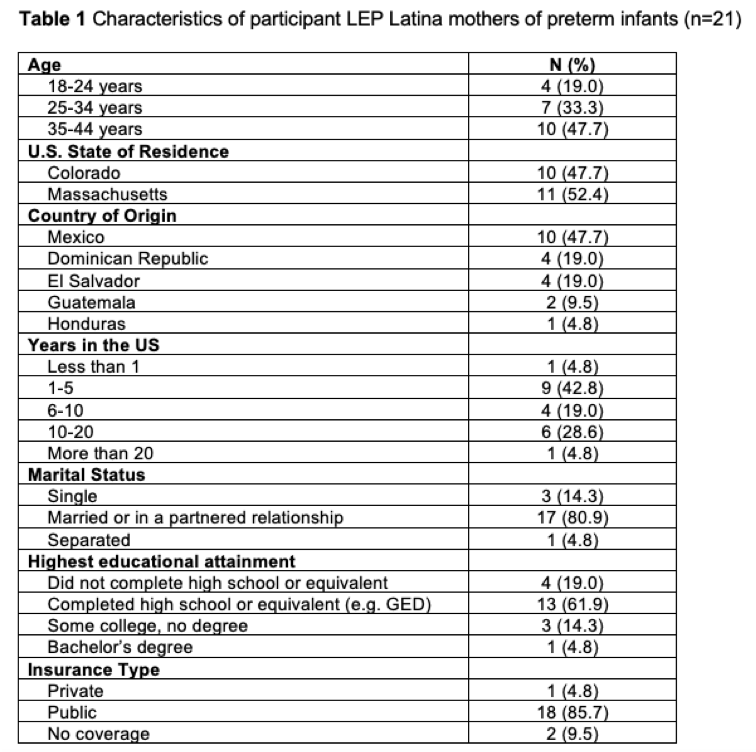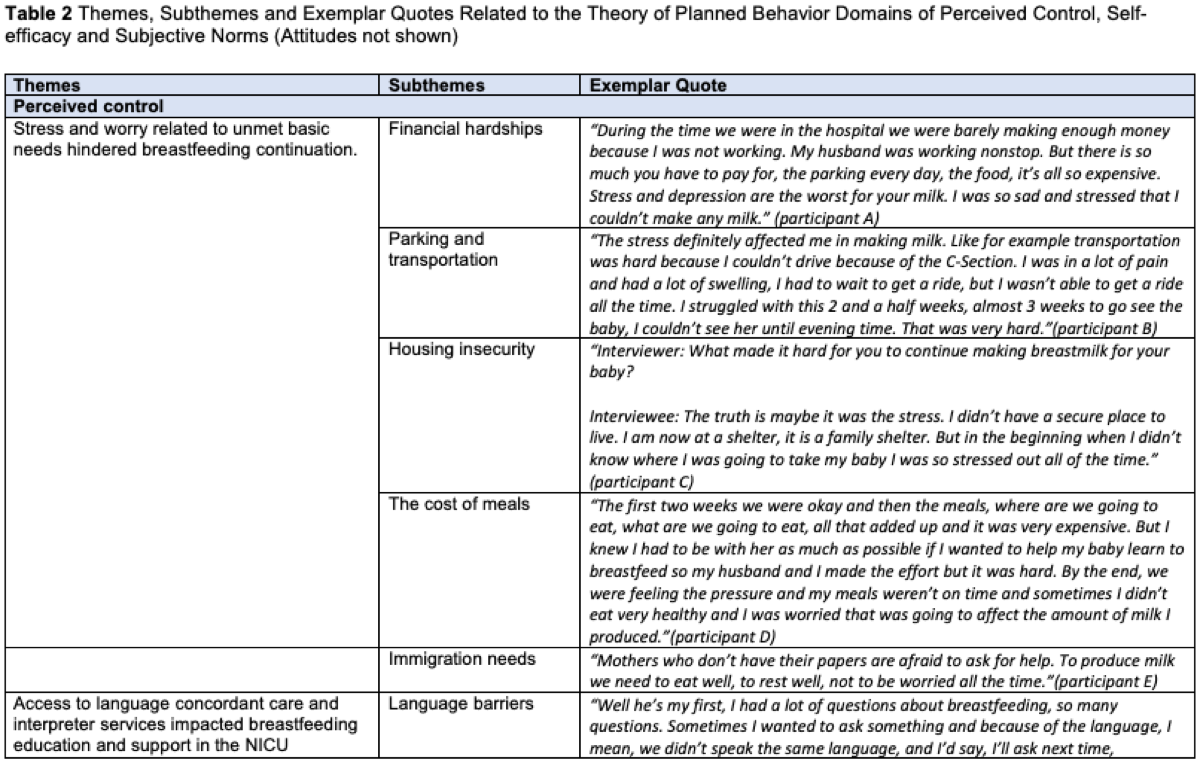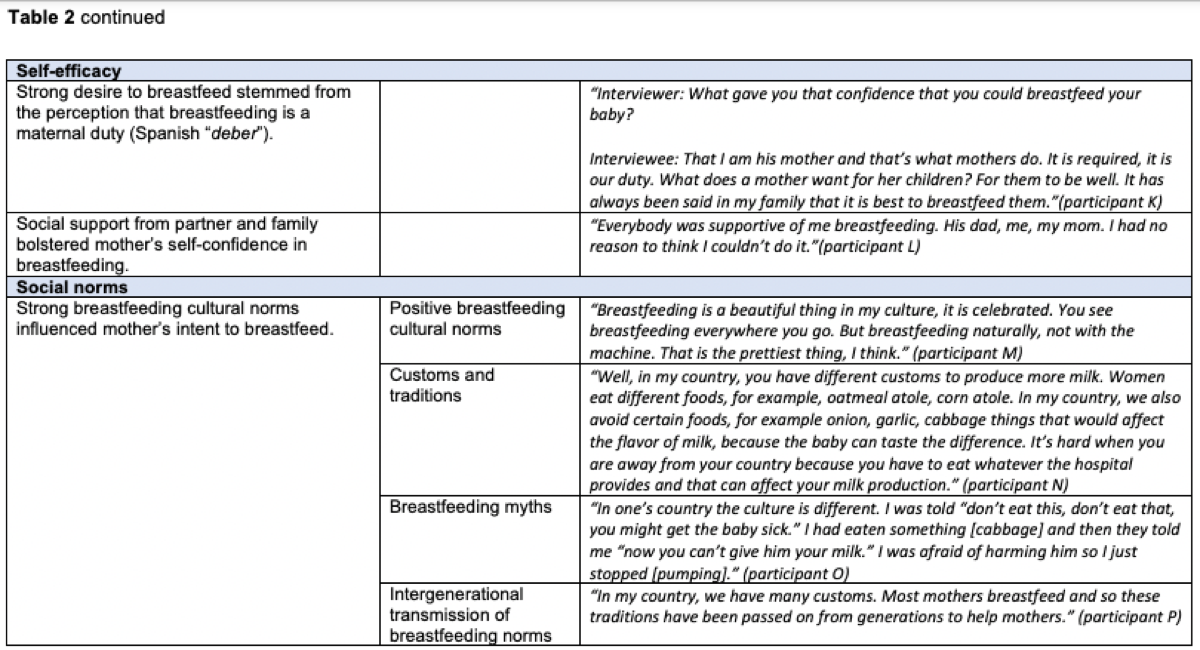Neonatal-Perinatal Health Care Delivery: Epidemiology/Health Services Research
Neonatal-Perinatal Health Care Delivery 1: Epi/HSR Equity
615 - Social and Cultural Factors that Influence Breastfeeding Practices among Limited English Proficient Latina Mothers of Preterm Infants
Publication Number: 615.14

Erika G. Cordova Ramos, MD (she/her/hers)
Assistant Professor of Pediatrics
Boston University School of Medicine
Wellesley, Massachusetts, United States
Presenting Author(s)
Background:
Providing high-quality breastfeeding support for limited English proficient (LEP) mothers of preterm infants remains challenging.
Objective:
We aimed to understand the factors that facilitate or impede breastfeeding among LEP Latina mothers of preterm infants.
Design/Methods:
Using qualitative research methods, we conducted in-depth, semi-structured interviews with mothers of preterm infants (< 34 weeks’ gestation) in 2 level III neonatal units in Massachusetts and Colorado, 2-6 months after infant hospital discharge. We used the Theory of Planned Behavior (TPB) framework to design the interview guide and codebook. The TPB has four domains: attitudes about the behavior, perceived control over the behavior, self-efficacy concerning the behavior, and perceived subjective norms (what others think) of the behavior. We developed themes iteratively, and conducted interviews until reaching thematic saturation.
Results: We interviewed in Spanish 21 mothers born in Central America and Mexico (Table 1). Social and cultural factors that facilitate and impede breastfeeding were prominent across the domains of perceived control, self-efficacy and subjective norms (Table 2). Regarding perceived control, mothers felt that the stress and worry related to unmet basic needs hindered breastfeeding continuation; and access to language concordant care and interpreter services impacted breastfeeding education and support in the NICU. Regarding self-efficacy, mothers view breastfeeding as a maternal duty (“deber”), and felt that social support from partner and family bolstered their self-confidence in breastfeeding. Regarding social norms, mothers described strong cultural norms that influenced their intent to breastfeed and positive and negative customs and beliefs related to breastfeeding.
Conclusion(s):
Breastfeeding support practices for LEP Latina mothers of preterm infants should leverage mothers’ social supports and positive cultural norms, and address language barriers, detrimental practices, and unmet basic needs that hinder breastfeeding continuation. 


